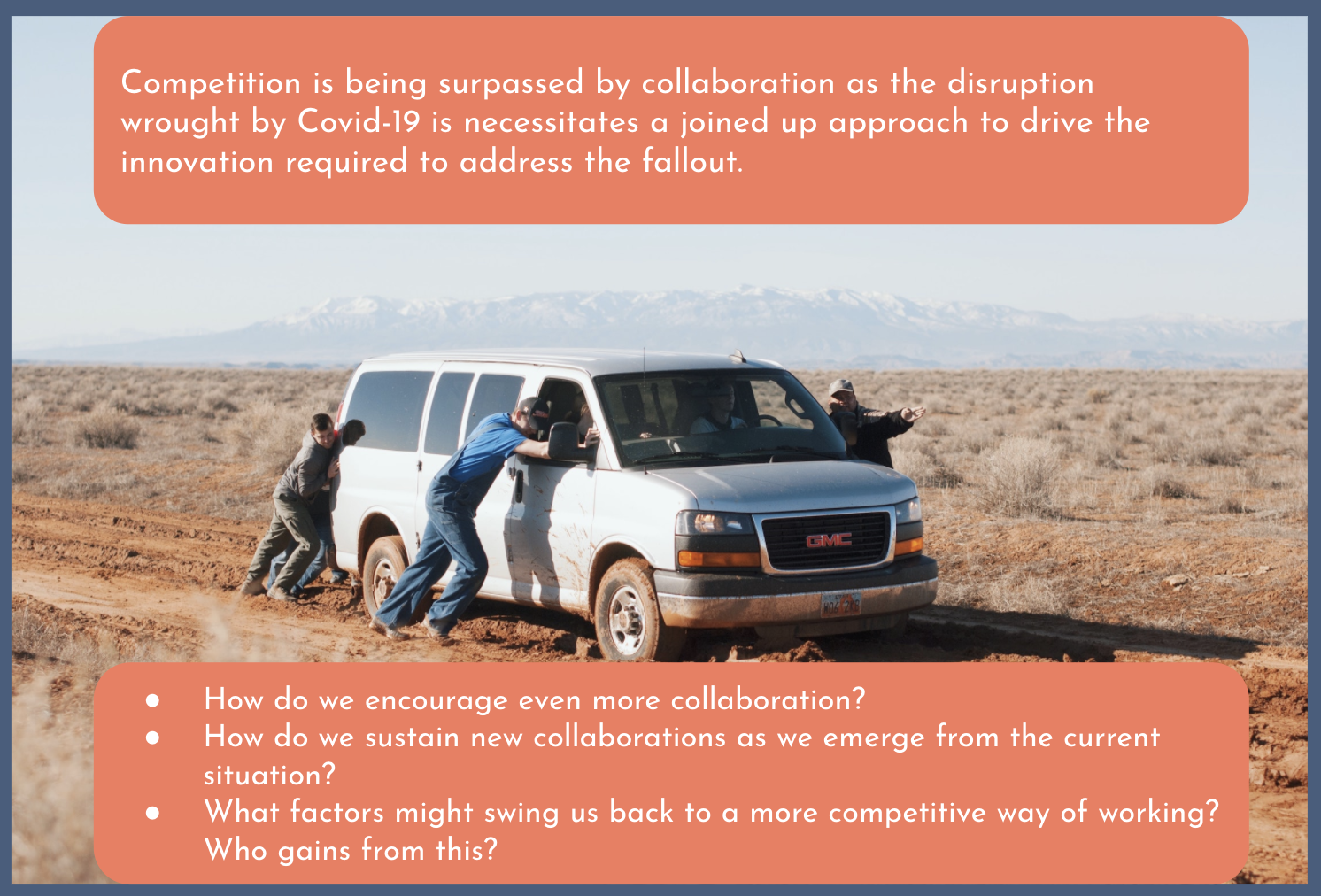In our fourth Observatory Sighting, we discuss the shift from competition to collaboration born from the necessity of a rapid, joined up response to the disruption wraught by Covid-19.

The shift away from competition towards greater collaboration has been smoother and faster where trust already exists. This is something that we explored in our third Sighting and is a theme that appears to reappear time and again.
Questions we’ve been asking ourselves
It seems clear to us that collaboration is preferable to competition, opening the door to a more effective and comprehensive response to the multiple challenges that have been thrown up by the Covid-19 pandemic.
- How do we encourage even more collaboration?
- How do we sustain new collaborations as we emerge from the current situation?
- What factors might swing us back to a more competitive way of working? Who gains from this?
And finally, our favourite story of the week
A very short film, from people making kit for the NHS in Shetland. Stick with it to the final frame.
Thanks to this week’s contributors
The Observatory is a voluntary collaboration led by the Relationships Project. We are dependent on the eyes and ears of our observers and partner organisations and we need more.
The voices heard this week include Jane Williams, Iona Lawrence, Radhika Bynon, Julian Dobson,Nancy Winfield, Avril McIntyre, Jennie Cox, Nick Sinclair and the LAC Network.
